Vocabulary enhancement Normal Alphabet Worksheets for Ages 3-4
15 filtered results
-
From - To
Discover our engaging "Vocabulary Enhancement Normal Alphabet Worksheets for Ages 3-4" strategically designed to ignite your child's love for language. Our worksheets blend playful illustrations with interactive activities, making learning alphabet fun and effective. Tailored for young minds, these worksheets aren’t just about recognizing letters, but also about building a robust vocabulary foundation. Perfect for little learners, the activities enhance both letter recognition and word comprehension skills, setting the stage for future literacy excellence. Parents and educators trust our resources to nurture curious minds in a delightful and educational way. Start your child's vocabulary journey today!


Rhyming Words: Assessment Worksheet
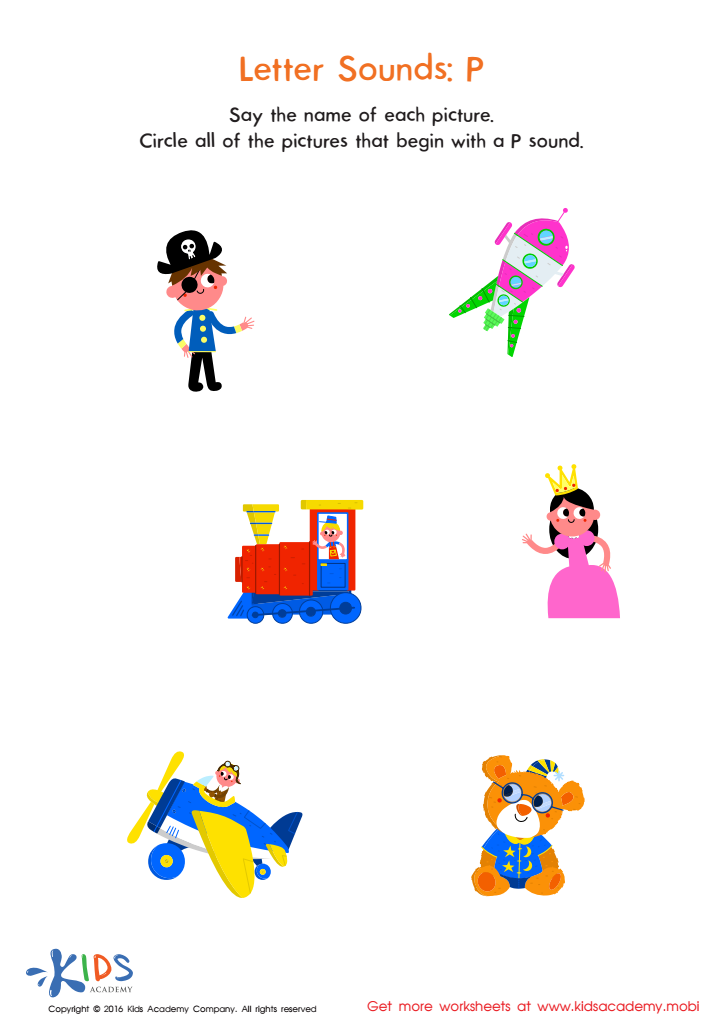

Letter P Sound Worksheet
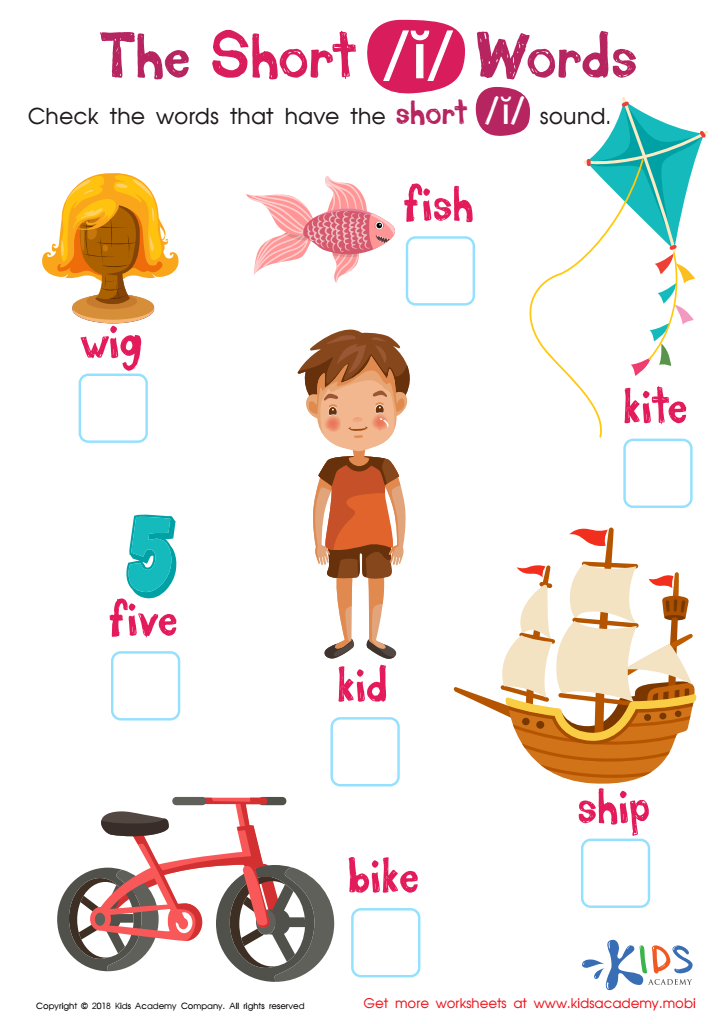

The Short I Words Reading Worksheet
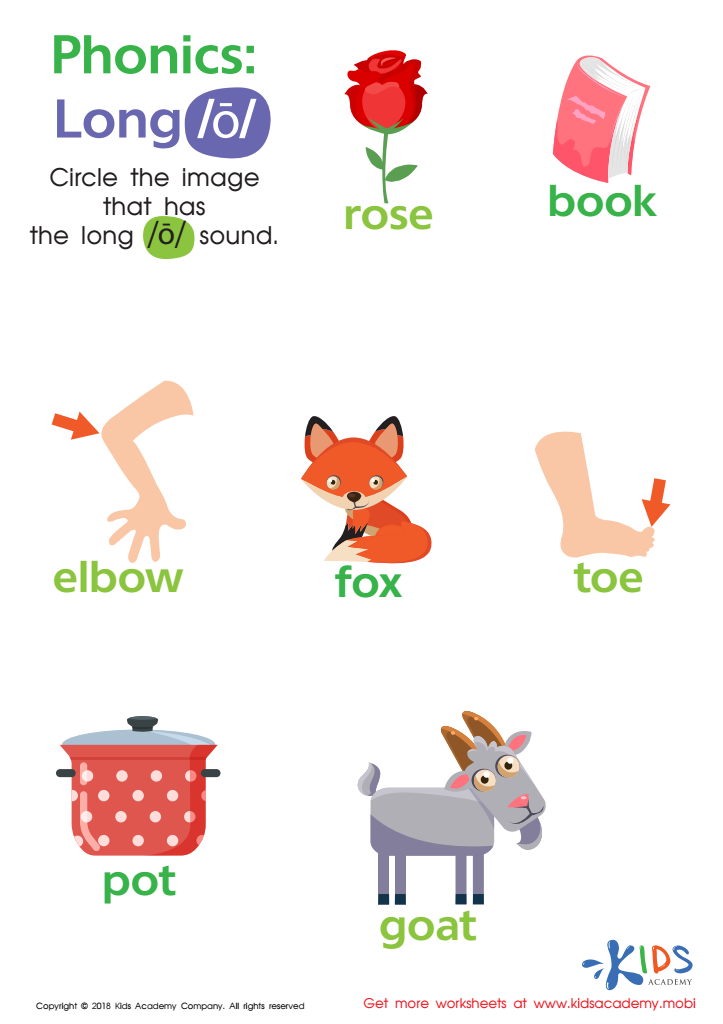

Phonics Long O Reading Worksheet
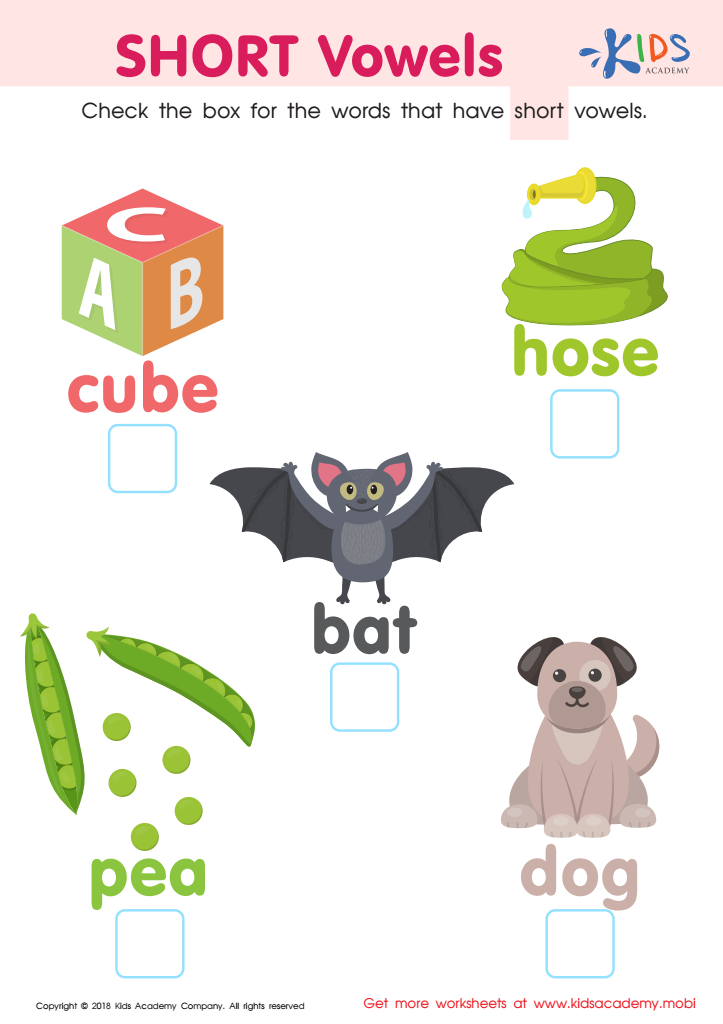

short vowels Worksheet


Rhyming Words Rhyming Worksheet
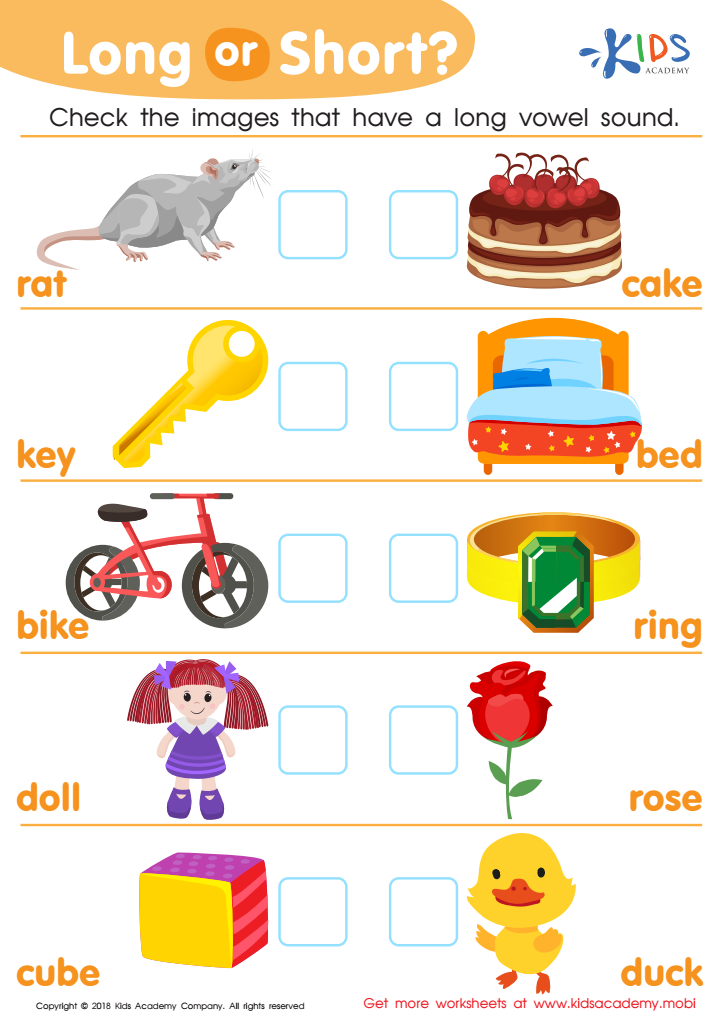

Long or Short Reading Worksheet
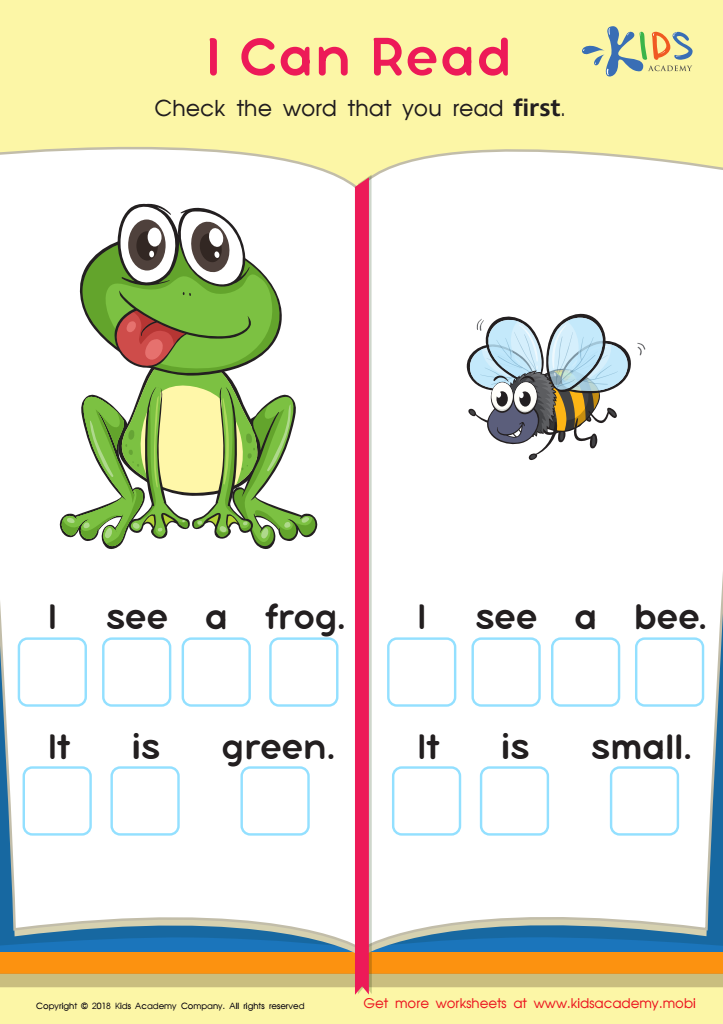

I Can Read Worksheet


First Words: Picture Rhymes Worksheet
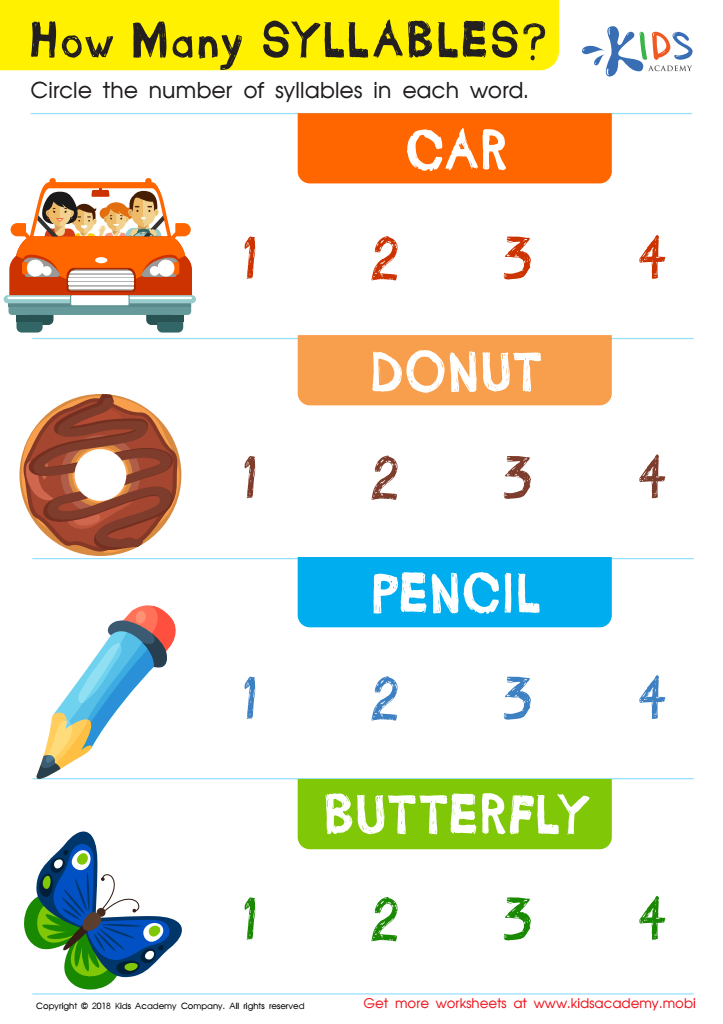

How Many Syllables? Worksheet
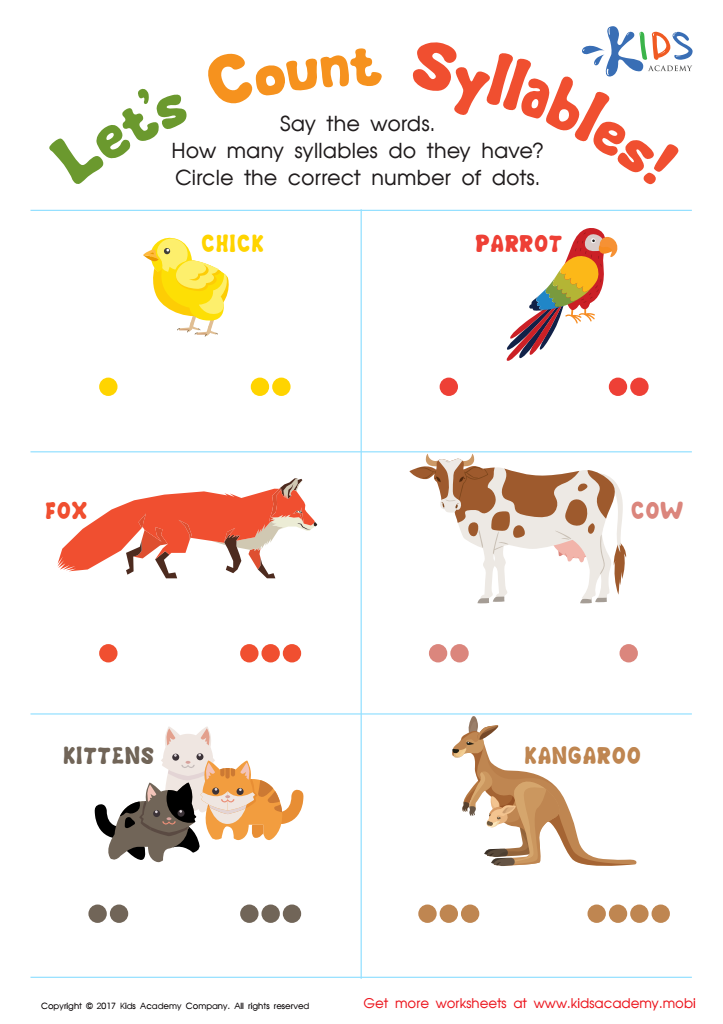

Lets Count Syllables Worksheet
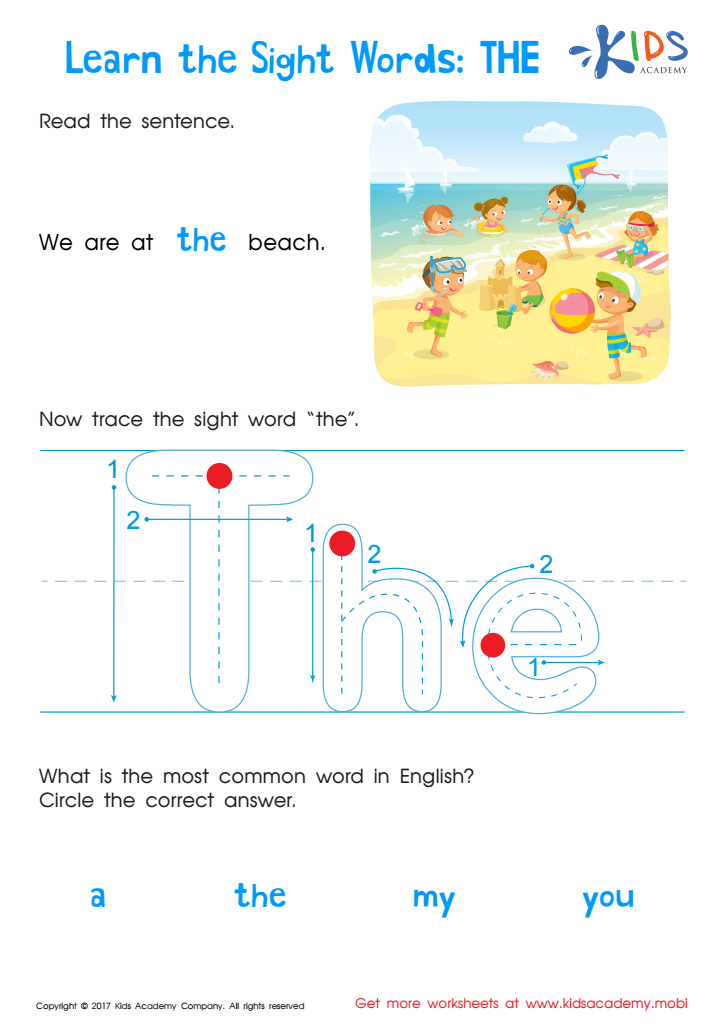

Sight Words: The Worksheet
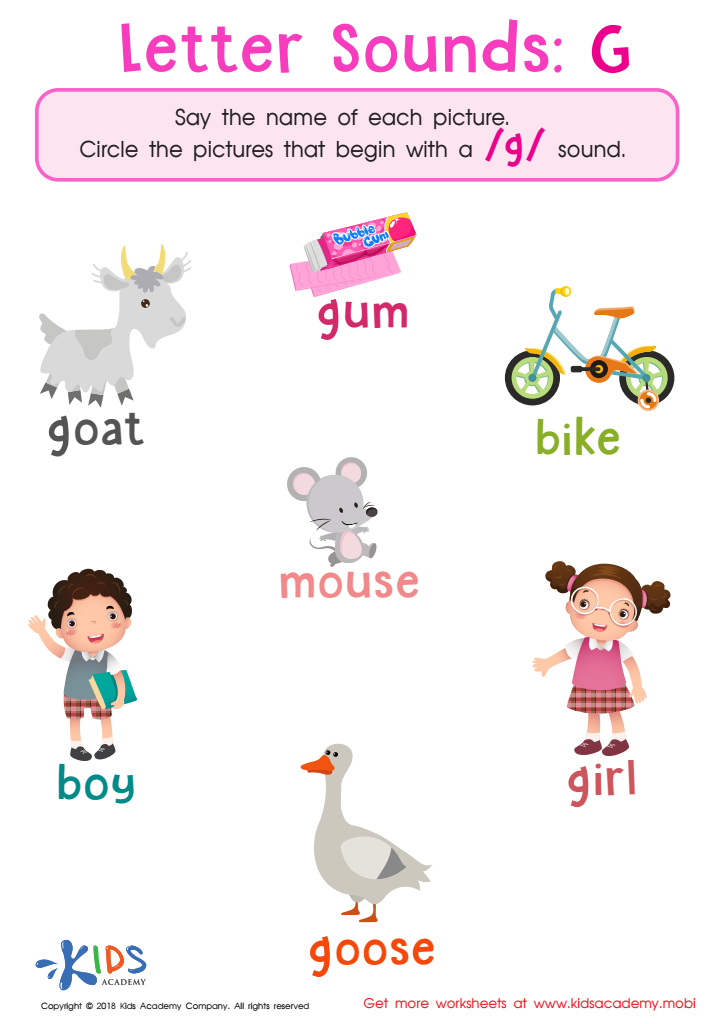

Letter G Sounds Worksheet
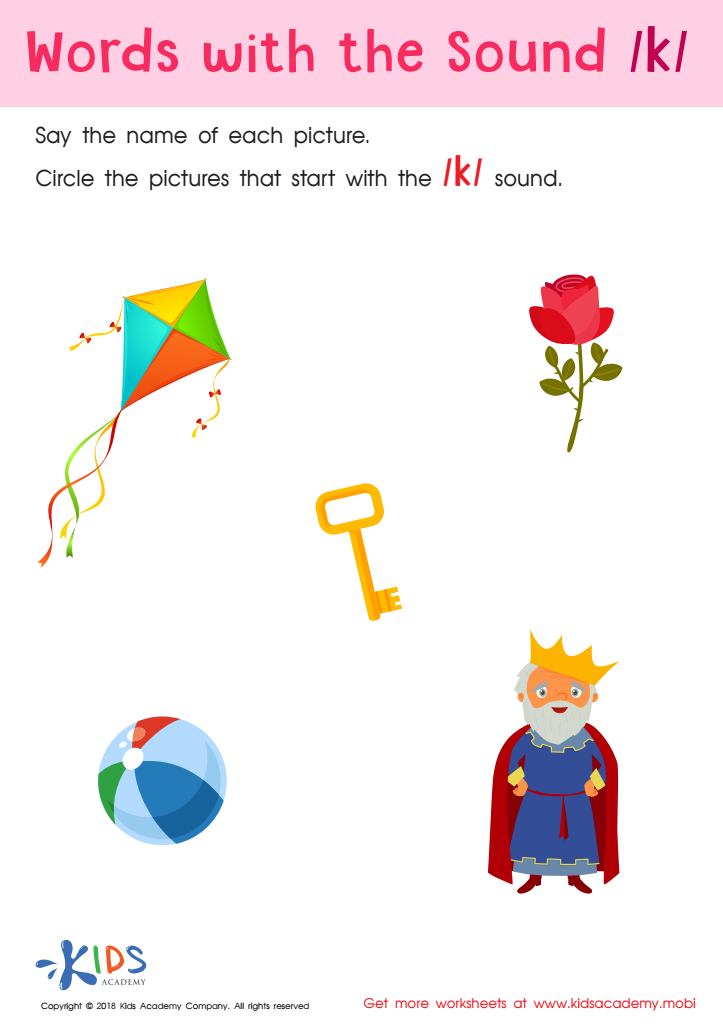

Words with sound k Reading Worksheet
Vocabulary enhancement using the Normal Alphabet for ages 3-4 is incredibly important for a child's early language development. At this age, children's brains are rapidly growing, and they are like sponges, absorbing new information quickly. Enhancing vocabularies helps to improve their communication skills, emotional expression, and cognitive development, all of which are crucial for later academic success.
Starting vocabulary building early can lead to better reading abilities and a greater understanding of the world around them. This age range is a critical period for language acquisition. When children learn words, they also learn how to think, conceptualize, and understand different aspects of their environment. By focusing on the Normal Alphabet, teachers and parents can systematically introduce new vocabulary words in a structured manner.
Moreover, having a robust vocabulary can significantly boost a child's confidence and social skills. When children have a wide range of words at their disposal, they can express their needs, thoughts, and emotions more effectively, leading to fewer frustrations and better interactions with peers and adults. Engaging in vocabulary enhancement activities, such as reading alphabet books, singing alphabet songs, and interactive games, makes learning enjoyable and fosters a lifelong love of language and reading. For these reasons, it's vital for both parents and teachers to prioritize vocabulary building in early childhood education.

 Assign to My Students
Assign to My Students























